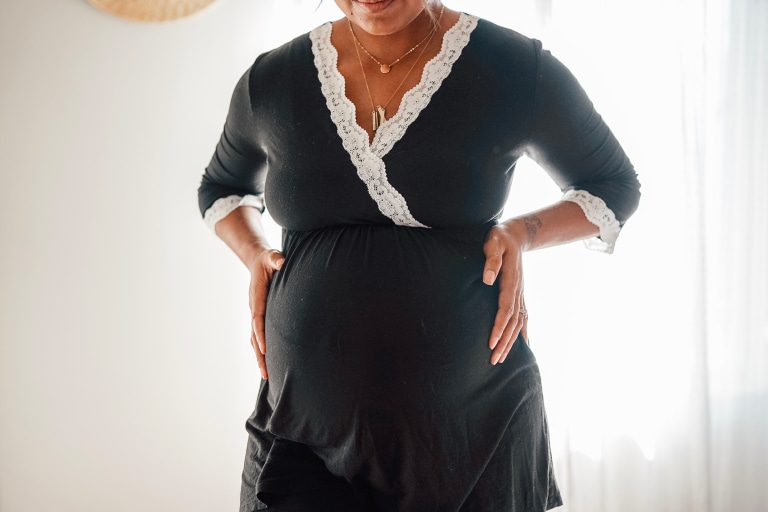


How Do You Know If You're Leaking Amniotic Fluid? Amniotic fluid will take on different levels of proteins, carbohydrates, phospholipids, lipids and electrolytes as necessary to nourish the growing fetus. This substance begins to form up to two weeks after fertilization. The fluid also acts as a level of cushioning that protects the fetus from harm. The fetus may move about in this fluid, but it limits the wall of the uterus from contracting too tightly around the growing baby. For additional information visit Linking to and Using Content from MedlinePlus.Amniotic fluid is the substance which surrounds the fetus as it grows in the uterus. Any duplication or distribution of the information contained herein is strictly prohibited without authorization. Links to other sites are provided for information only - they do not constitute endorsements of those other sites. A licensed physician should be consulted for diagnosis and treatment of any and all medical conditions. The information provided herein should not be used during any medical emergency or for the diagnosis or treatment of any medical condition. This site complies with the HONcode standard for trustworthy health information: verify here. Learn more about A.D.A.M.'s editorial policy editorial process and privacy policy. is among the first to achieve this important distinction for online health information and services. follows rigorous standards of quality and accountability. is accredited by URAC, for Health Content Provider (URAC's accreditation program is an independent audit to verify that A.D.A.M. If you feel the need to vacuum the entire house at 3 a.m., or finish your work in the baby's nursery, you may be getting ready for labor.Ī.D.A.M., Inc. There is no science behind the theory, but plenty of women feel the sudden urge to "nest" right before labor starts. If this happens and your stools are looser than normal, you may be going into labor. Some women have the urge to go to the bathroom often to empty their bowels. Even if contractions do not begin, let your provider know as soon as you think your water has broken.ĭiarrhea.For most women, contractions come within 24 hours after the bag of water breaks.When the amniotic sac (bag of fluid around the baby) breaks, you will feel fluid leak from your vagina. If you feel less movement, call your health care provider, as sometimes decreased movement can mean that the baby is in trouble. The mucous plug that sealed your cervix during your pregnancy may be visible. If you have bloody or brownish discharge from your vagina, it may mean your cervix has begun to dilate.

For women who have had babies before, it may not happen until labor has begun.īloody show. For first-time mothers, lightening often happens a few weeks before birth.You may need to urinate more often because the baby is pressing on your bladder.It will be easier for you to breathe because the baby is not putting pressure on your lungs. This happens when your baby's head "drops" down into your pelvis.


 0 kommentar(er)
0 kommentar(er)
